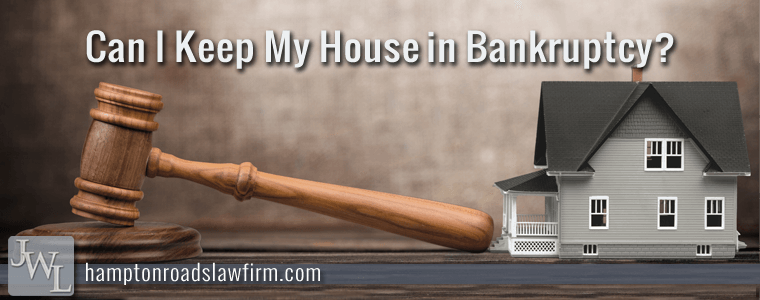By: John Lee
I have been practicing bankruptcy law since 1998 and one of the most commonly asked questions is, “Can I keep my house in bankruptcy?” In most cases, a debtor filing bankruptcy can keep his home.
When speaking to a new client about whether they can keep their home, the first factor I normally consider is whether they are behind on the mortgage payments. If the client is behind on his mortgage payments, then the mortgage company can still foreclose on the property even after the filing of a Chapter 7 bankruptcy. A Chapter 7 bankruptcy will discharge a debtor’s debt, but not the secured lien against the property. This means that the mortgage company can still foreclose on the property after the Chapter 7 even though the debt has been discharged.
The next factor I look at when trying to determine if a client can keep his house in bankruptcy is whether he has equity in the property. If a debtor has equity in his real estate, then the Chapter 7 Trustee can take the property and liquidate it for the benefit of the unsecured creditors. This means the Trustee will sell the debtor’s home and give the money to the creditors. Virginia has one of the smallest homestead exemptions in the nation. In Virginia, a debtor can exempt from his creditors up to a maximum of $5,000.00 of equity in his property. This figure can be slightly higher if married or elderly. In addition to the Homestead Exemption, in some limited cases, married debtors may be eligible for a Tenancy by the Entirety exemption. If after taking into consideration cost-of-sale and exemptions, the debtor still has equity available, then I recommend that they not file a Chapter 7 Bankruptcy if they wish to keep the property. If the debtor has too much equity to file a Chapter 7 bankruptcy, then they can file a Chapter 13. The Trustee in a Chapter 13 bankruptcy will not take the house to sell for the benefit of the creditors.
Not everyone filing bankruptcy wants to keep their house. There are several reasons one may want to surrender their house back to the mortgage company in a bankruptcy. One of the main reasons to surrender your house in bankruptcy is if you are so far behind on the payments that it would be too costly to catch them up, even over a 60 month period. Some people come to me and they are literally years behind on their monthly mortgage installment payments. In some cases we see debtors that owe twenty-five or thirty thousand dollars in back monthly payments. In cases like this, they could file a Chapter 13 bankruptcy, but the monthly payment in the Chapter 13 may be too much for them to afford. Rather than paying thousands of dollars a month in mortgage payments, they would rather just let the house go and move into a much less expensive apartment.
Another reason to surrender your house in bankruptcy is that you have little to no equity or are upside down on your mortgage. If you have forty thousand dollars of negative equity in your house it makes sense to surrender it in bankruptcy. Many people determine that it is not financially beneficial to pay forty or fifty thousand dollars more than a house is worth due to adjustments in the housing market.
Often times it is combination of factors, the debtor is behind on the mortgage payments, there is substantial negative equity in the property and the cost to maintain the house has become such that it is no longer worth keeping it. If you find yourself in any of these situations, or a combination thereof, you could file a Chapter 7 bankruptcy and discharge the mortgage debt. By filing a Chapter 7 bankruptcy and surrendering the house back to the mortgage company; you avoid the possibility of being sued by a mortgage company for a deficiency balance.
In many cases a debtor will want to file a bankruptcy because they are trying to stop a foreclosure sale on their home. A Chapter 7 bankruptcy will not permanently stop a foreclosure sale. By filing a Chapter 7 bankruptcy, the debtor may stall a foreclosure sale a few months, but ultimately, the foreclosure process will resume. The Chapter 13 bankruptcy will stop the foreclosure and allow the debtor to make payments over a period of time (normally 60 months) to catch up the payments to the mortgage company.
While there are many other factors to consider when determining whether a person can or should keep their home in bankruptcy, these considerations are often the starting point in the discussion. Other factors we look at could include (1) ownership and inheritance issues, (2) condition of the property, (3) second and third mortgages, (4) judgment and tax liens, (5) homeowner’s association issues, and (6) deed recording issues. Generally speaking, if you have no equity in your house and are current on your mortgage payments then you can keep your house in a Chapter 7 bankruptcy. If you have equity and/or are running behind on your mortgage payments, then you should consider filing a Chapter 13 bankruptcy to keep your house. The experienced attorneys at John W. Lee, P.C. are ready and able to help you determine which bankruptcy you should file.
This may be considered Advertising Material.


